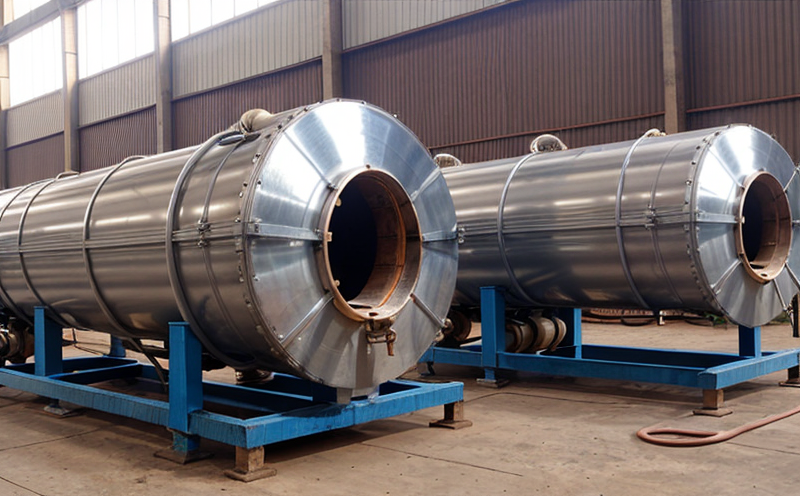Boiler water tube inspection
The inspection of boiler water tubes is a critical process that ensures the safe and efficient operation of boilers in various industrial sectors. Boiler water tubes are responsible for transferring heat from combustion gases to water, which then generates steam. Any failure in these tubes can lead to serious accidents, including explosions, which underscores the need for thorough inspections.
Boiler water tube inspection typically involves visual examination as well as non-destructive testing (NDT) methods such as ultrasonic testing (UT), radiographic testing (RT), and magnetic particle testing (MPI). The goal is to detect any signs of corrosion, erosion, cracks, or other defects that may compromise the structural integrity of the tubes. These inspections are crucial for compliance with international standards like ASME Section V, EN 15279, and ISO/IEC 8643.
During a typical inspection, water tubes are isolated from the boiler system to ensure safety. The tubes are then cleaned using appropriate methods before NDT procedures begin. The choice of testing method depends on several factors including tube material, expected service life, and previous inspection results. For instance, UT is preferred for its depth resolution capabilities in detecting flaws deep within the wall thickness, while RT provides excellent contrast between defect-free and flawed areas.
After completing inspections, detailed reports are generated that document all findings along with recommendations for necessary repairs or replacements. Compliance officers responsible for maintaining safe operations will use these reports to make informed decisions about maintenance schedules and potential upgrades of equipment. R&D engineers can also leverage this data to improve designs and materials used in manufacturing future boilers.
Regular inspections play a vital role not only in preventing accidents but also in extending the useful lifespan of boilers, reducing downtime costs associated with unexpected failures, and lowering energy consumption by optimizing heat transfer efficiency within the system. By adhering to strict inspection protocols outlined by relevant standards, organizations can demonstrate their commitment to safety and sustainability.
It is important to note that improper or insufficient inspections could lead to missed defects which might ultimately result in catastrophic incidents affecting personnel, property, and environment alike. Therefore, it's essential for companies operating boilers to prioritize regular, professional inspections conducted by qualified personnel equipped with advanced technologies.
International Acceptance and Recognition
The inspection of boiler water tubes is widely accepted across multiple international standards including ASME Section V, EN 15279, ISO/IEC 8643, and others. These standards provide clear guidelines on how to perform these inspections effectively ensuring consistency in quality control practices worldwide.
- ASME Section V: This American Society of Mechanical Engineers standard specifies requirements for materials, fabrication procedures, inspection methods, and acceptance criteria applicable primarily to power boilers.
- EN 15279: Developed by European Committee for Standardization (CEN), this European Norm sets out detailed specifications concerning the design, construction, testing, operation, and maintenance of industrial steam boilers and hot water generators.
- ISO/IEC 8643: An International Organization for Standardization document detailing procedures for radiographic examination of welds in pressure vessels including those found in boiler systems.
Adherence to these internationally recognized standards ensures that inspections conducted by different laboratories around the globe are consistent. This uniformity enhances reliability and trust among stakeholders involved in manufacturing, purchasing, and using boilers equipped with inspected water tubes.
Environmental and Sustainability Contributions
The inspection of boiler water tubes contributes positively to environmental sustainability efforts by preventing potential accidents that could release hazardous substances into the environment. Regular inspections help identify defects early on, allowing for timely repairs or replacements before they cause catastrophic failures resulting in significant environmental impacts.
- Reduction in Emissions: By ensuring optimal performance of boilers through regular inspections and subsequent maintenance actions, less fuel is consumed leading to lower emissions of greenhouse gases like CO2. This contributes significantly towards reducing carbon footprints associated with industrial operations.
- Safe Disposal of Waste: Proper inspection practices contribute to responsible disposal of waste materials generated during boiler maintenance activities such as spent chemicals or dismantled components. Compliance with environmental regulations is ensured by adhering strictly to safe handling procedures recommended by relevant authorities.
In addition to these direct benefits, the proactive approach taken towards inspecting and maintaining boiler water tubes sets a positive example for other industries seeking to adopt sustainable practices within their operations. Such leadership fosters collaboration between organizations committed to reducing their ecological footprint while promoting safer working environments.
Competitive Advantage and Market Impact
The ability to conduct reliable, accurate inspections of boiler water tubes offers significant competitive advantages in today’s highly regulated market. Companies that invest in robust inspection programs demonstrate their commitment to safety, compliance, and sustainability – all factors increasingly valued by customers and regulators alike.
- Enhanced Reputation: Organizations known for stringent quality controls and adherence to international standards are more likely to gain trust from clients seeking reliable partners. This reputation translates directly into better business relationships and increased market share.
- Cost Savings: Early detection of defects through regular inspections helps avoid costly repairs or replacements down the line. Additionally, reduced downtime associated with preventive maintenance schedules results in lower overall operational costs for businesses operating boilers.
Beyond immediate financial benefits, investing in advanced inspection technologies and skilled personnel enhances a company’s ability to stay ahead of changing market demands. As regulatory requirements evolve, those equipped with state-of-the-art solutions are better positioned to adapt quickly without compromising safety standards.





